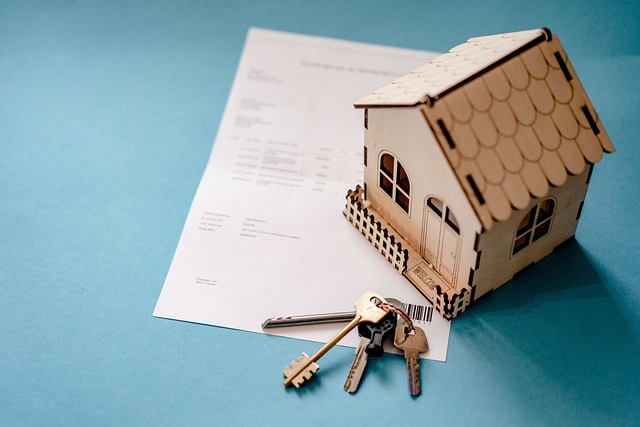Search foreclosed homes
Searching for foreclosed homes can be an excellent opportunity to find properties at below-market prices. Whether you're a first-time homebuyer looking for an affordable entry into the real estate market or an investor seeking to profit from bank-owned properties, understanding how to search for and purchase foreclosed homes is essential. This article will guide you through the process of finding and buying foreclosed properties in Australia, exploring the potential benefits and risks involved.

What are foreclosed homes and why are they attractive?
Foreclosed homes are properties that have been repossessed by lenders, typically banks, due to the homeowner’s inability to keep up with mortgage payments. These properties often come to market at prices lower than comparable homes in the area, making them attractive to buyers looking for potential bargains. The appeal of foreclosed homes lies in the possibility of purchasing property below market value, which can lead to instant equity or provide opportunities for profitable renovations and resale.
How can I find local foreclosed homes for sale?
Finding local foreclosed homes for sale requires a bit of research and effort. One of the most effective ways to locate these properties is through online real estate portals that specialize in foreclosure listings. Many banks and lending institutions also maintain their own databases of foreclosed properties. Additionally, working with a real estate agent who has experience in foreclosures can provide access to exclusive listings and valuable insights into the local market.
What are the steps to buy foreclosed homes below market value?
Purchasing a foreclosed home below market value involves several key steps. First, research the local real estate market to understand current property values. Next, get pre-approved for a mortgage to determine your budget and show sellers you’re a serious buyer. When you find a property of interest, conduct a thorough inspection to assess its condition and potential repair costs. Make an offer based on your research and the property’s condition, keeping in mind that foreclosed homes are often sold “as-is.” Be prepared for a potentially competitive bidding process, as other buyers may also be interested in the same property.
What risks should I be aware of when buying foreclosed properties?
While foreclosed homes can offer great value, they come with certain risks. Many foreclosed properties are sold in “as-is” condition, meaning the buyer is responsible for any repairs or renovations needed. These homes may have been vacant for extended periods, leading to maintenance issues or vandalism. There may also be liens or unpaid taxes associated with the property that could become the buyer’s responsibility. It’s crucial to conduct thorough due diligence, including title searches and professional inspections, before committing to a purchase.
How can investors profit from bank-owned foreclosure deals?
Investors can potentially profit from bank-owned foreclosure deals through various strategies. One approach is to purchase properties at a discount, make necessary repairs and improvements, and then resell them for a profit – a practice known as “flipping.” Another strategy is to buy foreclosed homes and convert them into rental properties, generating ongoing income. Some investors also specialize in purchasing and redeveloping distressed properties in up-and-coming neighborhoods, capitalizing on area improvements and rising property values.
Are there exclusive foreclosure listings available to buyers?
Yes, there are exclusive foreclosure listings available to buyers, but accessing them often requires specialized resources or professional connections. Some real estate websites offer subscription-based services that provide early access to foreclosure listings before they hit the public market. Working with real estate agents who specialize in foreclosures can also unlock access to off-market properties and bank-owned listings not widely advertised. Additionally, some banks have “REO” (Real Estate Owned) departments that manage foreclosed properties and may offer direct purchase opportunities to qualified buyers.
| Resource Type | Description | Access Method | Potential Benefits |
|---|---|---|---|
| Online Foreclosure Databases | Comprehensive listings of foreclosed properties | Subscription-based | Early access, detailed information |
| Bank REO Departments | Direct listings from financial institutions | Contact banks directly | Exclusive deals, potential for negotiation |
| Specialized Real Estate Agents | Agents with foreclosure expertise | Hire an agent | Off-market properties, professional guidance |
| Government Auctions | Properties foreclosed due to tax liens | Register for auctions | Potentially lower prices, diverse inventory |
Note: Access to exclusive listings and the availability of foreclosed properties may vary. Independent research and professional advice are recommended before making any financial decisions.
In conclusion, searching for foreclosed homes can be a rewarding endeavor for both homebuyers and investors. While these properties often present opportunities for below-market purchases, they also come with unique challenges and risks. Success in the foreclosure market requires careful research, due diligence, and often, professional assistance. By understanding the process and being aware of the potential pitfalls, buyers can navigate the foreclosure market more effectively and potentially find valuable property investments.
The shared information of this article is up-to-date as of the publishing date. For more up-to-date information, please conduct your own research.




